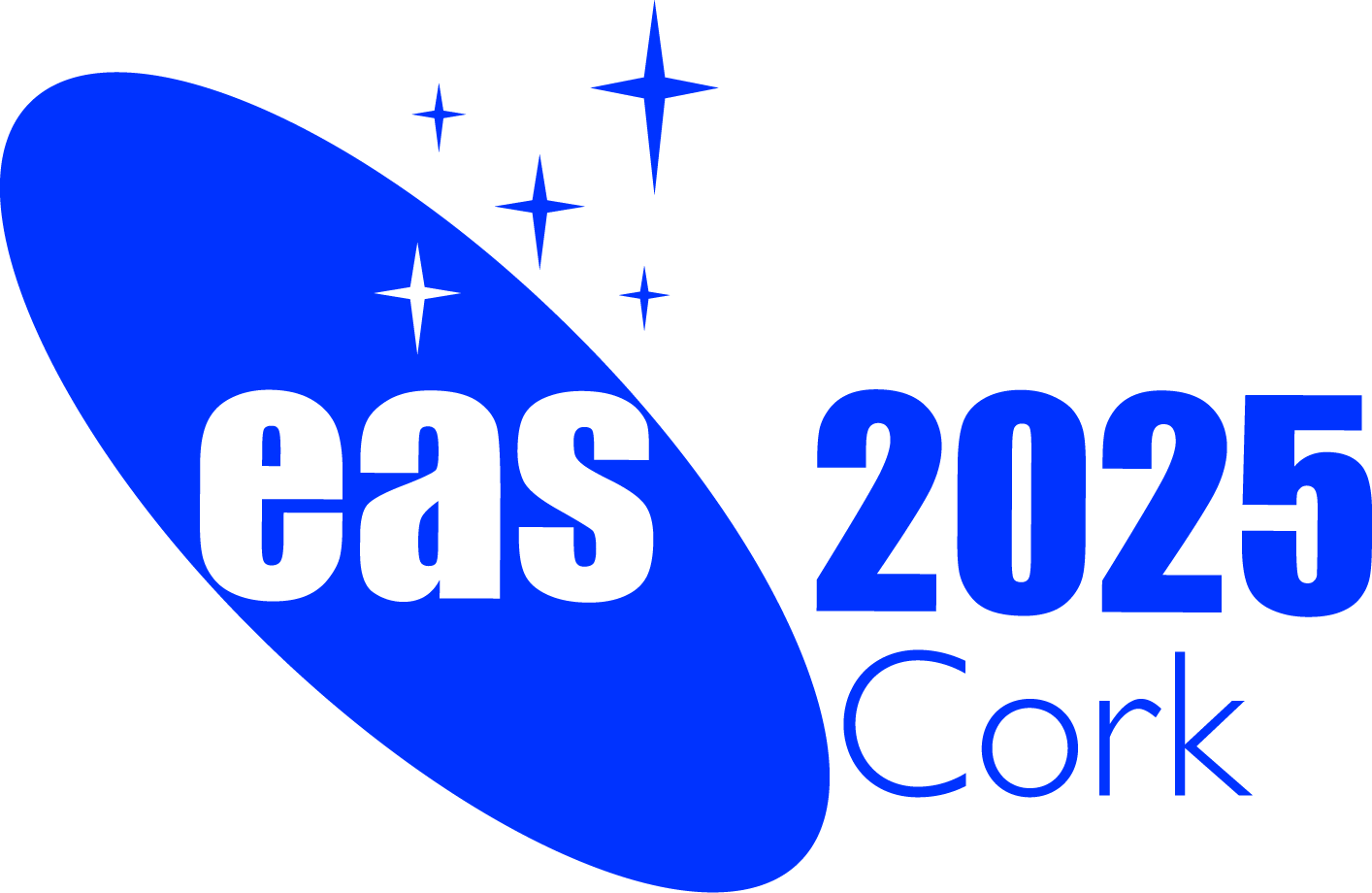
|
European Astronomical Society
|

|
|
|
|
|
|
EAS Job Directory
Find Jobs
| Time-domain astrophysics with the Wide-field Spectroscopic Telescope (Postdoc) | Closing date: 2025-08-31
Contact: Richard Anderson |
| The successful applicant will contribute to defining the top-level technical requirements imposed by the time-domain science case for the Wide-field Spectroscopic Telescope (WST www.wstelescope.com), analyze instrument requirements specified for diverse science questions, and develop figures-of-merit and other quantitative metrics that will aid to select the science drivers and their implications on the facility?s requirements. This work will be performed in close collaboration with Richard Anderson at EPFL, leader of the WST time-domain science working group. | | ▸ more | WST is a major instrumentation project with the potential to shape European ground-based astronomy in the 2040s. As described in the white paper (Mainieri et al. 2024, arXiv: 2403.05398), WST will be a dedicated optical spectroscopic survey facility featuring a 12m primary mirror, a 3x3 arcmin 2 integral field spectrograph, and wide-field (3.1 deg 2) high- (R~40000) and low-resolution (R~3-4000) spectrographs fed by 2000 and 30000 optical fibers, respectively. The WST consortium has received funding from the European Union and the Swiss Government to develop a detailed design concept, which the WST consortium will submit to the Expanding Horizons initiative of the European Southern Observatory in the hopes of making WST the next large ESO project. We need you to make this happen!
Main duties and responsibilities:
-Contributing to the definition of the time-domain science case for WST
-Reviewing science cases submitted to the WST time-domain working group and understanding their requirements affecting WST?s instrumentation and/or operational model
-Liaising with the community concerning technical requirements formulated
-Establishing source / event catalogs for time-domain science cases
-Developing figures-of-merit to quantify expected science returns according to specifications of the instruments and/or operational model
-Liaising with the WST survey design and other science working groups
-Organizing and contributing to remote and in-person meetings
Additional areas of activity may include analysis of spectroscopic observations of pulsating stars, for example in the context of 4MOST or the VELOCE project (Anderson et al. 2024; arXiv: 2404.12280).
The successful applicant shall contribute to a collaborative and inclusive team atmosphere. This includes being available for (graduate & undergraduate) student (co-)supervision and mentoring as well as remote or on-site observations in Chile and/or the Canary Islands.
Profile:
-PhD in astrophysics or related field by the time the appointment begins
-Full working proficiency of the English language is required, some knowledge of French would be helpful for the day-to-day life but is not required
-Ability to travel internationally and to legally work in Switzerland.
-Strong candidates will show evidence of scientific independence, assume ownership of the projects they work on, and communicate effectively within diverse international teams.
-An analytical mind that can synthesize complex subject matters even outside your own immediate research field
-Strong mathematical foundation; experience with figures of merit and selection functions is highly desirable
Experience:
-in optical spectroscopy, especially with integral field and/or fiber-fed multi-object spectrographs (please specify any technical/instrumentation expertise)
-in the analysis and interpretation of spectroscopic time-series data
-with large astronomical surveys
-with astronomical alerts systems (e.g., for Vera C. Rubin) and/or time-domain and/or multi-messenger astrophysics
The successful applicant will become an integral member of the Standard Candles and Distances research group (https://www.epfl.ch/labs/scd/members/) and of the Laboratory of Astrophysics (LASTRO). The team is based at Sauverny Observatory near Versoix, Switzerland, where EPFL and the University of Geneva share an inspiring world-class astrophysics research environment covering a wide range of subjects. For information on research at EPFL and in Sauverny, visit https://www.epfl.ch/labs/scd/, https://www.epfl.ch/labs/lastro/, https://www.epfl.ch/labs/galspec/, and https://www.unige.ch/sciences/astro/en/.
EPFL is a founding member of the WST consortium. Swiss scientists have access to ESO (e.g. VLT, ALMA, E-ELT) and ESA (e.g. HST, JWST, XMM-Newton, Euclid) facilities as well as the future SKAO. EPFL further enjoys preferred access to the 1.2m Swiss Euler telescope at La Silla observatory, Chile, as well as access to the Flemish 1.2m Mercator telescope on La Palma. EPFL is a full member of SDSS-V, DESI, and 4MOST, part of the MOONS and of the future BlueMUSE and MOSAIC consortia, and founding member of the MUST project. EPFL is recognized as one of the best Universities in Europe and covers both engineering and fundamental sciences.
EPFL is located in the French-speaking part of Switzerland. However, it is fully feasible to get by in English thanks to a large international community that includes CERN and the United Nations, in addition to many corporate headquarters. Applicants desiring to follow professional development courses at EPFL, or to learn French, will be encouraged to do so.
The position includes a competitive salary (depending on experience) and benefits according to the Swiss social security system (mandatory medical insurance, employer-provided accident insurance, retirement benefits, etc). The contract will be awarded on an annual basis. Funds for computer equipment, science travel, observations, publication charges, etc. are available.
The ideal starting date would be in late Summer 2025.
Review of applications will begin immediately. Late applications will be considered until the position is filled.
Below documents should be submitted as merged PDF:
-motivation letter
-CV, incl. names and addresses of 3 academic references (should submit their support confidential letters to admin.LASTRO @ epfl.ch stating "WST-TD postdoc" and applicant name in the subject line)
-a publication list with the 3publications most relevant to this position highlighted. A link to a private ADS library would be appreciated
-research statement (3 pages max) that showcases any relevant technical expertise
-if PhD not yet been awarded: anticipated PhD completion date confirmation
For more information and to apply: https://careers.epfl.ch/job-invite/1590/
For further questions please contact: richard.anderson @ epfl.ch
|
More resources
Links to other job lists
|

